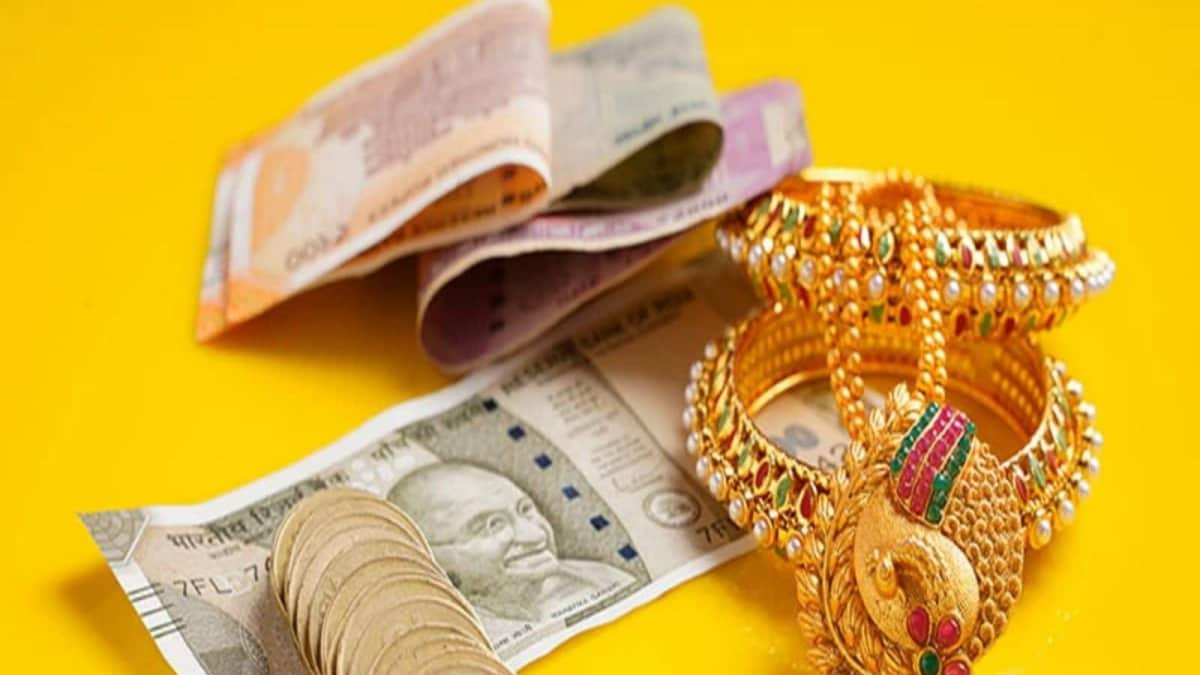- November 24, 2025
Should You Sell Gold Or Take A Loan During Emergency? Experts Break Down The Better Option

Last Updated:
Let’s hear from experts what they think as a better option during emergency – loan vs sell.
Gold loan vs selling (Representative/Shutterstock)
Gold Loan vs Selling: Gold has long seen as a hedge against crisis in India’s household, along with its cultural significance. Ancestors wore gold-based jewellries and stored coins and bars, just for the sake to use during a catastrophe.
Holders of gold can either sell or take a loan from lenders. There’s a conundrum as which works best during the crisis – borrowing or selling. While selling gold can offer a large lump sum amount at once without any liability, but it has an opportunity cost of losing an asset that will appreciate in the future. On the other hand, borrowing from loan will keep your assets, hinging on your ability to pay the interest on time until maturity. In case the borrower fails to pay the loan with interest, then the lender is allowed to sell their gold through an auction.
Which Is A Good Option?
Unlike selling, which means relinquishing ownership, a gold loan enables you to retain your precious gold, allowing you to benefit from future appreciation or keep cherished heirlooms, as your ornaments are returned once the loan is repaid. Vishal Singh- Managing Director, Country Head – Assets and Strategic Alliances, Consumer Banking Group, DBS Bank India said to News18 that “gold loans provide a practical and secure financial solution, allowing you to access immediate funds while preserving the intrinsic, sentimental, and investment value of your gold.”
“This also maintains gold’s investment potential as a hedge against inflation. For peace of mind, your pledged gold is securely stored in the lender’s vaults,” Singh added.
However, at the current 24-carat gold price levels, many financial planners believe selling gold can unlock more value for people needing full liquidity. CA Kinjal Shah, Vice-President of the Bombay Chartered Accountants’ Society, told News18 that at today’s high rates, selling often provides better returns because it lets individuals realise the full market price upfront. There are no interest costs later, no loan-to-value cap, and no risk of pledging an asset for an extended period.
Shah notes that when gold prices are trending upward, selling becomes even more attractive as it allows people to lock in high valuations without taking on repayment obligations. A gold loan, on the other hand, remains restricted by RBI’s LTV limits, and the interest payable reduces the benefit of any future price appreciation. While a gold loan remains useful for small, short-duration needs where the aim is to retain ownership, selling is generally considered more favourable for larger or longer-term funding needs.
There are also tax factors to consider. Shah explains that selling physical gold attracts capital gains tax. If the holding period is 24 months or more, the gain is classified as long-term and taxed at a flat rate without indexation. If sold earlier, the gain becomes short-term and is taxed at your income slab rate. Borrowing against gold, however, does not trigger any capital gains since the gold is not transferred—it is only pledged. Interest on such loans is deductible only when the borrowed funds are used for purposes allowed under the Income Tax Act.

Varun Yadav is a Sub Editor at News18 Business Digital. He writes articles on markets, personal finance, technology, and more. He completed his post-graduation diploma in English Journalism from the Indian Inst…Read More
Varun Yadav is a Sub Editor at News18 Business Digital. He writes articles on markets, personal finance, technology, and more. He completed his post-graduation diploma in English Journalism from the Indian Inst… Read More
November 24, 2025, 17:21 IST
Read More







